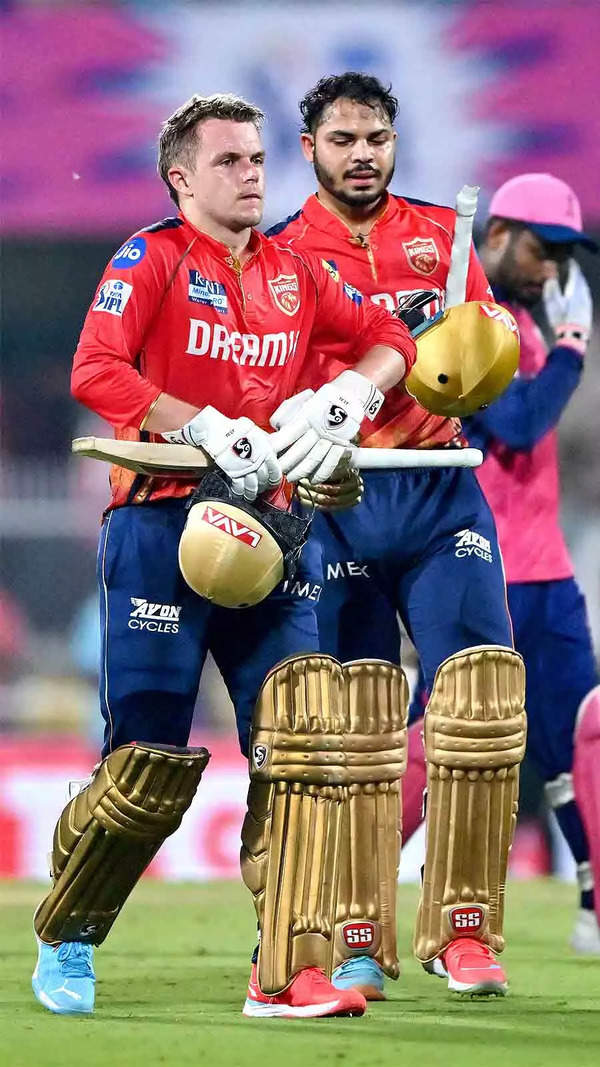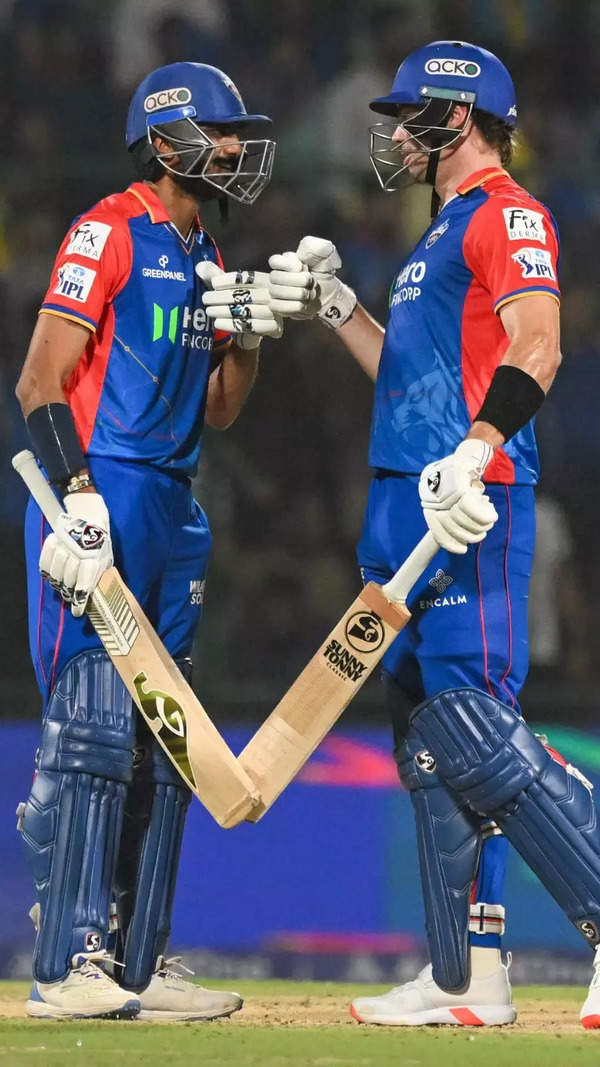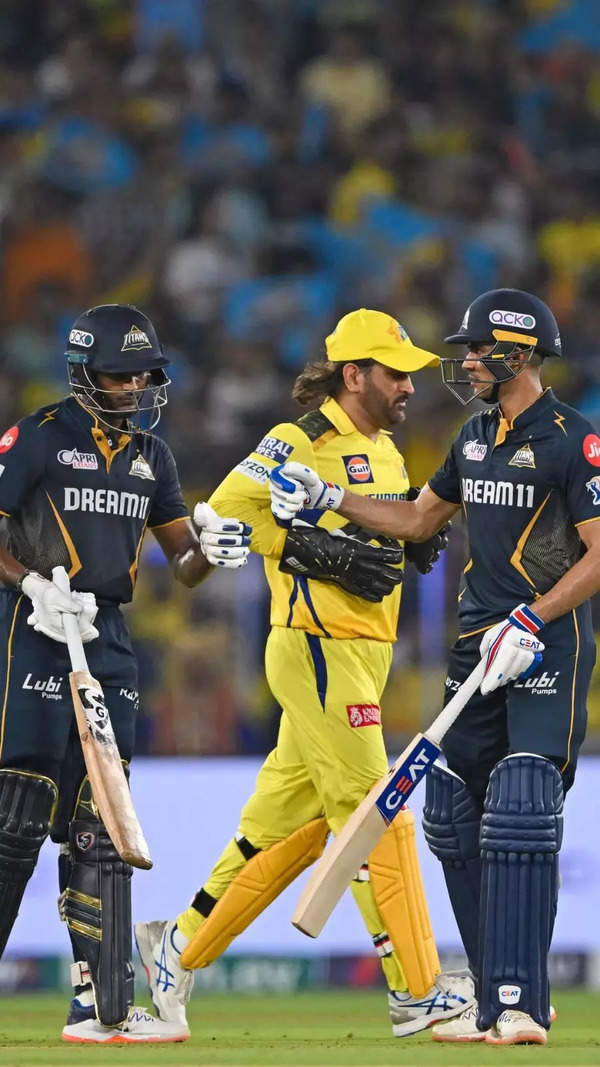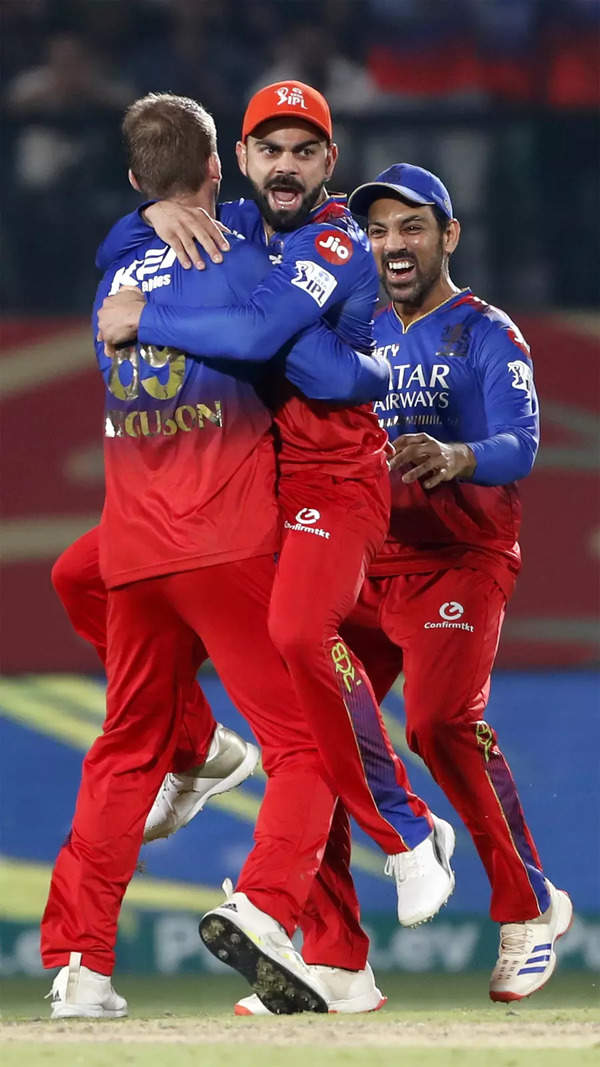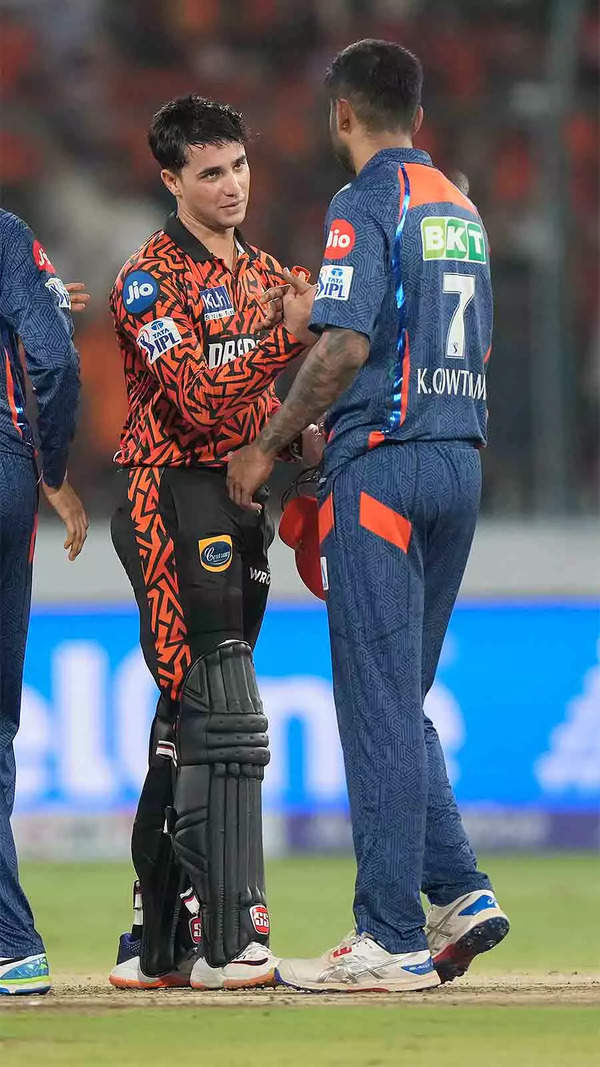- News
- Sports News
- Football News
- Pradip Kumar Banerjee: A self-made genius who was way ahead of his time
Trending
This story is from March 21, 2020
Pradip Kumar Banerjee: A self-made genius who was way ahead of his time
Some legends are born out of fabled tales, unverifiable but ubiquitous and soaked in tradition. Some legends are as elusive as a dream, as vague as a vignette.
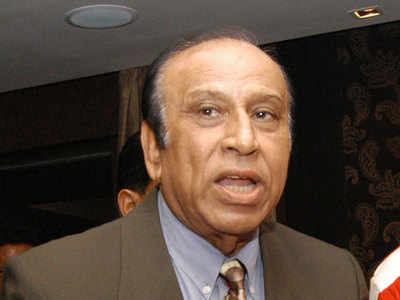
PK Banerjee. (TOI Photo)
Some legends are born out of fabled tales, unverifiable but ubiquitous and soaked in tradition. Some legends are as elusive as a dream, as vague as a vignette.
The legend of Pradip Kumar Banerjee - the venerable PK to everyone - is, however, self-made, built on the foundation of a dazzling career as player and coach, and subsequently passed on to generations of illustrious students who have served Indian football with distinction.
Having shepherded East Bengal to 30 trophies and Mohun Bagan to 23, he stood like a colossus for about three decades, bringing the best out of his players and inspiring them to embellish Indian football with performances that are part of Indian football's folklore.
Born to Prabhat and Bina Banerjee at Mainaguri in Jalpaiguri district in 1936, he was named Pradip as he was the first child to light up the family.

The journey that he began with a Santosh Trophy campaign for Bihar as a 15-year-old and went on to illuminate Indian football for about five decades in various capacities, has reached its final destination.
A man for all seasons and equipped with extraordinary management skills to transform adversity into antidote, PK will be remembered for his famous vocal tonic - those legendary pre-match pep-talks he delivered to inspire players to defy odds.
During the Federation Cup final in 1980, when a depleted and new-look East Bengal entered the Eden Gardens, star-studded Mohun Bagan were expected to have a cakewalk. But PK pulled off a coup with newcomer Majid Bishkar, comparing him with the 1979 Iranian Revolution leader Ayatollah Khomeini, and triggering the birth of a legend around the Iranian himself. It was the stuff folklores are made of. The result was an odds-defying 1-1 draw which led to East Bengal holding the trophy as joint winners.
He had done something similar with Shibaji Banerjee, at the same venue three years ago, spurring him on with a motivational talk which saw the Mohun Bagan goalkeeper produce a stellar show against Pele's New York Cosmos.
Yet, the legend of PK is not a straightforward narrative, documented in his records as a manager. His legacy will more significantly be remembered for presiding over a time when India dared to brush shoulders with global giants. A two-time Olympian, he was part of Indian football's best-ever performance on global stage when they finished fourth in the Melbourne Games in 1956 and went on to lead the national team four years later at the Rome Games. However, the icing on the cake of what is still regarded as the golden age of Indian football came in the Jakarta Asian Games in 1962. He scored in the final against South Korea as India rode the brilliance of the holy trinity - PK, Chuni Goswami and Tulsidas Balaram - to the gold medal.
For someone who never played for Mohun Bagan and East Bengal and stayed loyal to Eastern Railway for 13 straight seasons, helping his team break the Big Two's duopoly in the 1958 edition of Calcutta Football League, PK carved a niche for himself in a way very few would have even dreamed of. He was not as flamboyant and adventurous as Chuni, neither was he as instinctive as Balaram in front of the goal. But he possessed something that kept him well ahead of his time when tactics and systems were still evolving - a sharp football brain.
It was that acumen which helped him evolve into a master strategist soon after hanging up his boots in 1966. His development as a coach was intrinsically linked to his fabled rivalry with Amal Datta. Unlike Datta, PK was not a rebel or an idealist. In fact, he was often accused of seeking success with the best in the business. The truth is that none could manage to handle egos of superstar players as capably as him, bringing the best out of them and paving the way for the team's cause.
And, unlike his eight-year senior 'rival' Datta, for whom system was sacrosanct, PK was more pragmatic, rolling out tactics according to need of the hour and quality of players, and not the other way round.
It was his pragmatism which made him tweak Mohun Bagan's formation to 5-4-1 that helped them earn a famous 1-1 draw against then-Soviet Union giants FC Ararat Yerevan and be declared joint winners of the 1978 IFA Shield.
Any dissection of PK's worth as a coach would remain incomplete without a mention of the 1997 Federation Cup semifinal. Mohun Bagan were sparkling in a diamond system at that time under Datta, who started mind games by ridiculing the opponents, calling East Bengal's Kenyan defender Sammy Omollo 'omelette' and Bhaichung Bhutia 'Chung Chung' in inimitable style, little realizing how this would play into the hands of his bête noir. In front of more than 1,30,000 spectators, PK responded to the challenge with an Indian version of Catenaccio - bringing in Dulal Biswas and Amitava Chanda in defensive line-up and playing Kenyan goalkeeper Azande Abulista in replace of the regular Kalyan Chaubey in a move aimed at thwarting the opponents' aerial challenge. Having soaked up Bagan's blistering early pressure, PK's East Bengal had the last laugh with Bhaichung scoring a hat-trick in a 4-1 win.
The death of his wife Arati in 2003 devastated him mentally and a cerebral haemorrhage slowed him down physically in 2006. Over the last few years, he was largely confined to his Salt Lake home.
The idea of a living legend is often short-lived. But PK has lived his life king-size and over more than five decades. Long live the legend!
The legend of Pradip Kumar Banerjee - the venerable PK to everyone - is, however, self-made, built on the foundation of a dazzling career as player and coach, and subsequently passed on to generations of illustrious students who have served Indian football with distinction.
Having shepherded East Bengal to 30 trophies and Mohun Bagan to 23, he stood like a colossus for about three decades, bringing the best out of his players and inspiring them to embellish Indian football with performances that are part of Indian football's folklore.
Born to Prabhat and Bina Banerjee at Mainaguri in Jalpaiguri district in 1936, he was named Pradip as he was the first child to light up the family.

The journey that he began with a Santosh Trophy campaign for Bihar as a 15-year-old and went on to illuminate Indian football for about five decades in various capacities, has reached its final destination.
A man for all seasons and equipped with extraordinary management skills to transform adversity into antidote, PK will be remembered for his famous vocal tonic - those legendary pre-match pep-talks he delivered to inspire players to defy odds.
During the Federation Cup final in 1980, when a depleted and new-look East Bengal entered the Eden Gardens, star-studded Mohun Bagan were expected to have a cakewalk. But PK pulled off a coup with newcomer Majid Bishkar, comparing him with the 1979 Iranian Revolution leader Ayatollah Khomeini, and triggering the birth of a legend around the Iranian himself. It was the stuff folklores are made of. The result was an odds-defying 1-1 draw which led to East Bengal holding the trophy as joint winners.
He had done something similar with Shibaji Banerjee, at the same venue three years ago, spurring him on with a motivational talk which saw the Mohun Bagan goalkeeper produce a stellar show against Pele's New York Cosmos.
Yet, the legend of PK is not a straightforward narrative, documented in his records as a manager. His legacy will more significantly be remembered for presiding over a time when India dared to brush shoulders with global giants. A two-time Olympian, he was part of Indian football's best-ever performance on global stage when they finished fourth in the Melbourne Games in 1956 and went on to lead the national team four years later at the Rome Games. However, the icing on the cake of what is still regarded as the golden age of Indian football came in the Jakarta Asian Games in 1962. He scored in the final against South Korea as India rode the brilliance of the holy trinity - PK, Chuni Goswami and Tulsidas Balaram - to the gold medal.
For someone who never played for Mohun Bagan and East Bengal and stayed loyal to Eastern Railway for 13 straight seasons, helping his team break the Big Two's duopoly in the 1958 edition of Calcutta Football League, PK carved a niche for himself in a way very few would have even dreamed of. He was not as flamboyant and adventurous as Chuni, neither was he as instinctive as Balaram in front of the goal. But he possessed something that kept him well ahead of his time when tactics and systems were still evolving - a sharp football brain.
It was that acumen which helped him evolve into a master strategist soon after hanging up his boots in 1966. His development as a coach was intrinsically linked to his fabled rivalry with Amal Datta. Unlike Datta, PK was not a rebel or an idealist. In fact, he was often accused of seeking success with the best in the business. The truth is that none could manage to handle egos of superstar players as capably as him, bringing the best out of them and paving the way for the team's cause.
And, unlike his eight-year senior 'rival' Datta, for whom system was sacrosanct, PK was more pragmatic, rolling out tactics according to need of the hour and quality of players, and not the other way round.
It was his pragmatism which made him tweak Mohun Bagan's formation to 5-4-1 that helped them earn a famous 1-1 draw against then-Soviet Union giants FC Ararat Yerevan and be declared joint winners of the 1978 IFA Shield.
Any dissection of PK's worth as a coach would remain incomplete without a mention of the 1997 Federation Cup semifinal. Mohun Bagan were sparkling in a diamond system at that time under Datta, who started mind games by ridiculing the opponents, calling East Bengal's Kenyan defender Sammy Omollo 'omelette' and Bhaichung Bhutia 'Chung Chung' in inimitable style, little realizing how this would play into the hands of his bête noir. In front of more than 1,30,000 spectators, PK responded to the challenge with an Indian version of Catenaccio - bringing in Dulal Biswas and Amitava Chanda in defensive line-up and playing Kenyan goalkeeper Azande Abulista in replace of the regular Kalyan Chaubey in a move aimed at thwarting the opponents' aerial challenge. Having soaked up Bagan's blistering early pressure, PK's East Bengal had the last laugh with Bhaichung scoring a hat-trick in a 4-1 win.
The death of his wife Arati in 2003 devastated him mentally and a cerebral haemorrhage slowed him down physically in 2006. Over the last few years, he was largely confined to his Salt Lake home.
The idea of a living legend is often short-lived. But PK has lived his life king-size and over more than five decades. Long live the legend!
End of Article
FOLLOW US ON SOCIAL MEDIA

